Best IT Hardware for Dental Clinics: Laptops, Servers, and Networking
In a modern dental clinic, patient care relies not only on skilled practitioners but also on seamless IT infrastructure. From chair-side charting to digital X-rays, your hardware must deliver performance, security, and reliability. In this guide, we’ll cover the best IT hardware for dental clinics in Singapore, highlighting laptops, servers, and networking equipment that meet healthcare-grade standards and comply with PDPA requirements.
Dental Clinic Laptop Recommendations
1. Key Requirements for Clinic Laptops
Durability & Portability: Lightweight for roaming between operatories.
Processing Power: Intel Core i5/i7 or AMD Ryzen 5/7 for smooth imaging and charting.
Security Features: TPM 2.0, fingerprint reader, and compatible with BitLocker or similar disk-encryption.
Battery Life: Minimum 8 hours to last a full clinic session.
Warranty & Support: On-site next-business-day service in Singapore.
2. Top Picks
Tip: Standardize on one model to simplify drivers, warranty claims, and staff training.
Server Hardware for Dental Practices
1. Why You Need a Dedicated Server
Centralized storage for patient records, digital images, and appointment data
On-premises control for faster local access and simplified PDPA compliance
Scalability to add more storage or virtual machines as your clinic network grows
2. Recommended Server Configurations
3. Brands & Models
HPE ProLiant ML30 Gen10: Entry-level tower server with easy serviceability.
Dell PowerEdge R250: A compact rack server ideal for small-footprint clinics.
Lenovo ThinkSystem SR250: Cost-effective, reliable, and backed by local support.
Networking Equipment for Clinic Environments
1. Core Networking Needs
Reliable Connectivity: Zero downtime for digital radiography and real-time charting.
Guest Wi-Fi: Segregated from clinical network to maintain HIPAA/PDPA compliance.
VPN Access: Secure remote access for after-hours administration or tele-consultation.
2. Switch & Router Recommendations
3. Network Topology Best Practices
Perimeter Security: Place your FortiGate at the edge, with separate VLANs for clinical devices, admin PCs, and guest Wi-Fi.
PoE for Convenience: Use PoE switches to power VoIP handsets, Wi-Fi APs, and network cameras without extra cables.
Redundancy & Monitoring: Implement link aggregation on uplinks and deploy network-monitoring tools (e.g., PRTG or Zabbix) for real-time alerts.
Implementation & Support Considerations
PDPA Compliance: Ensure all storage and backup policies include encryption at rest and in transit.
Warranty & SLAs: Opt for next-business-day on-site support agreements with all hardware vendors in Singapore.
Scalability Planning: Choose modular servers and stackable switches to grow your practice without forklift upgrades.
Conclusion
Equipping your dental clinic with the right IT hardware is a foundational step toward efficient workflows, enhanced patient care, and regulatory compliance. By selecting clinic-grade laptops, robust servers, and secure networking gear—backed by local support—you’ll ensure that your Singapore practice stays online, secure, and ready to scale.
Ready to upgrade your clinic’s IT hardware? Contact Advance IT for a personalized consultation and hardware procurement plan.






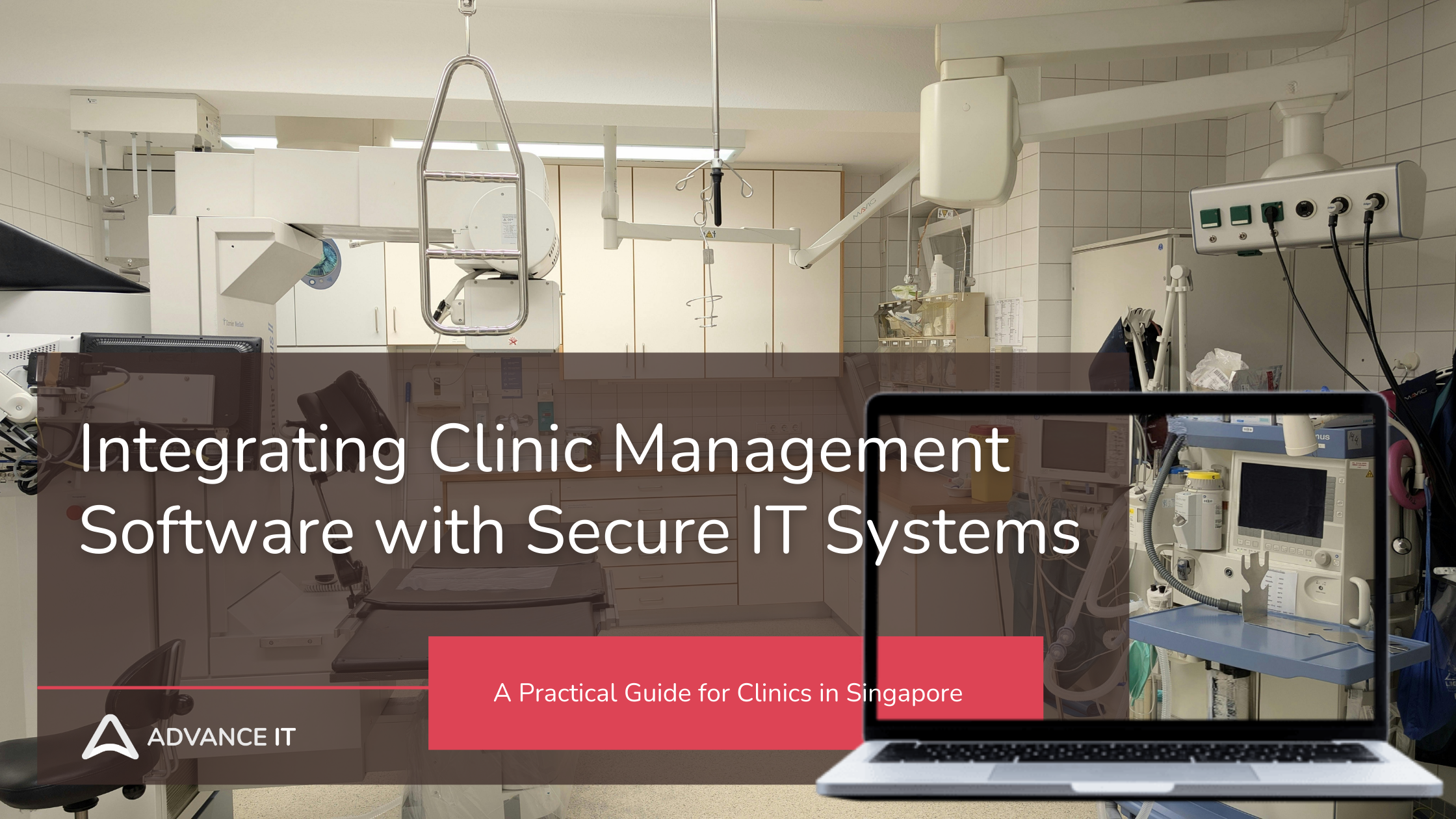
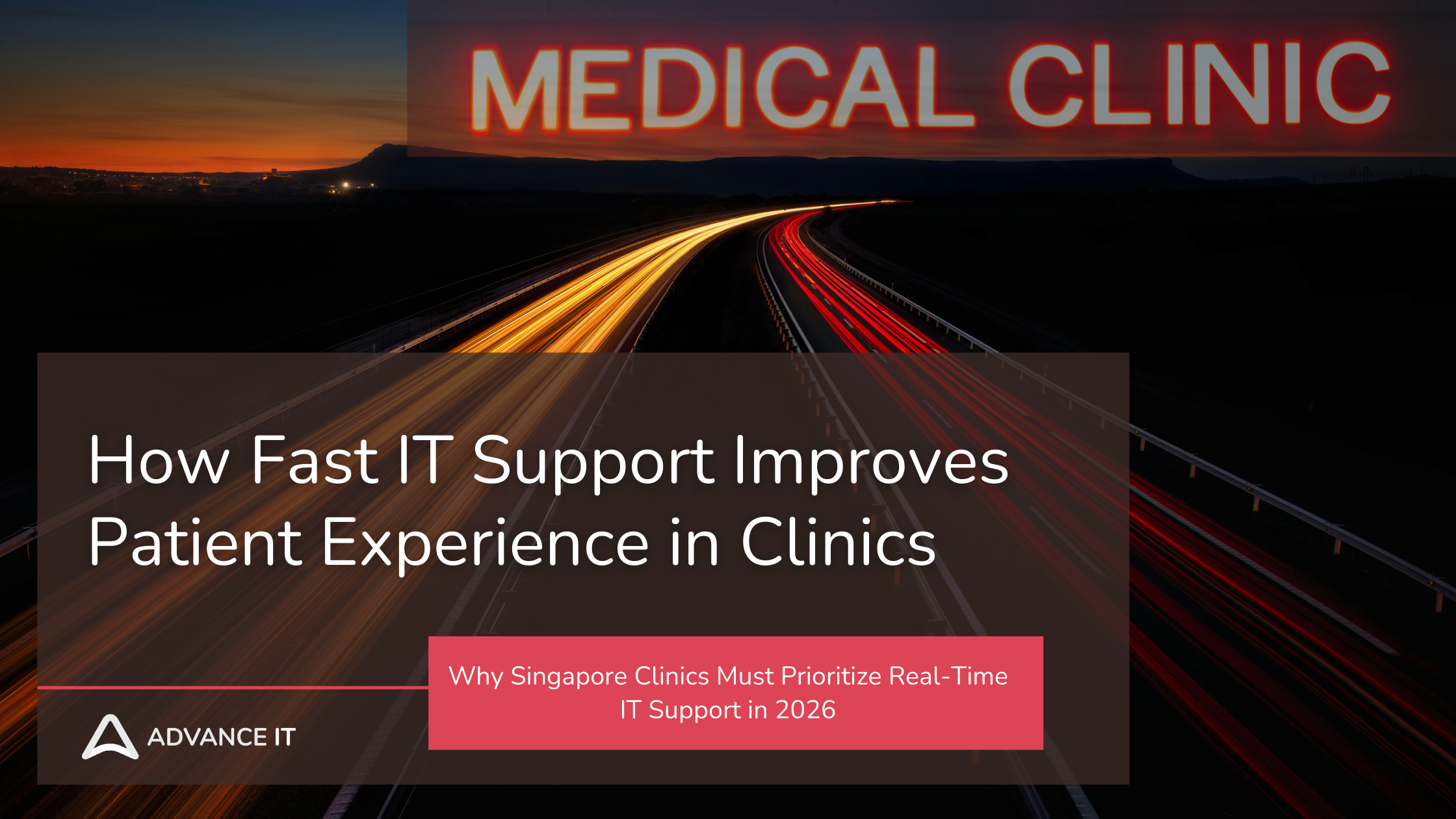
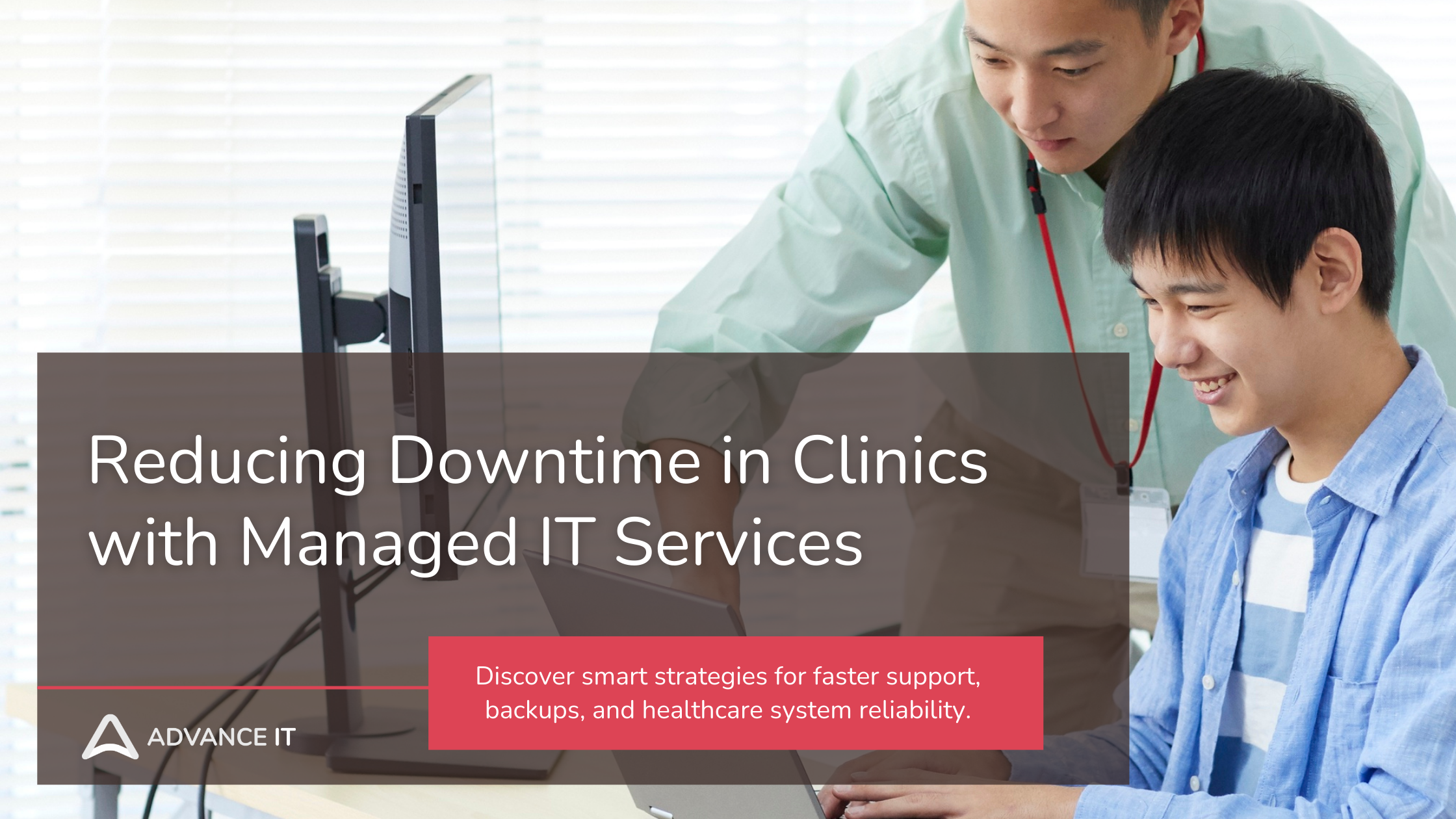
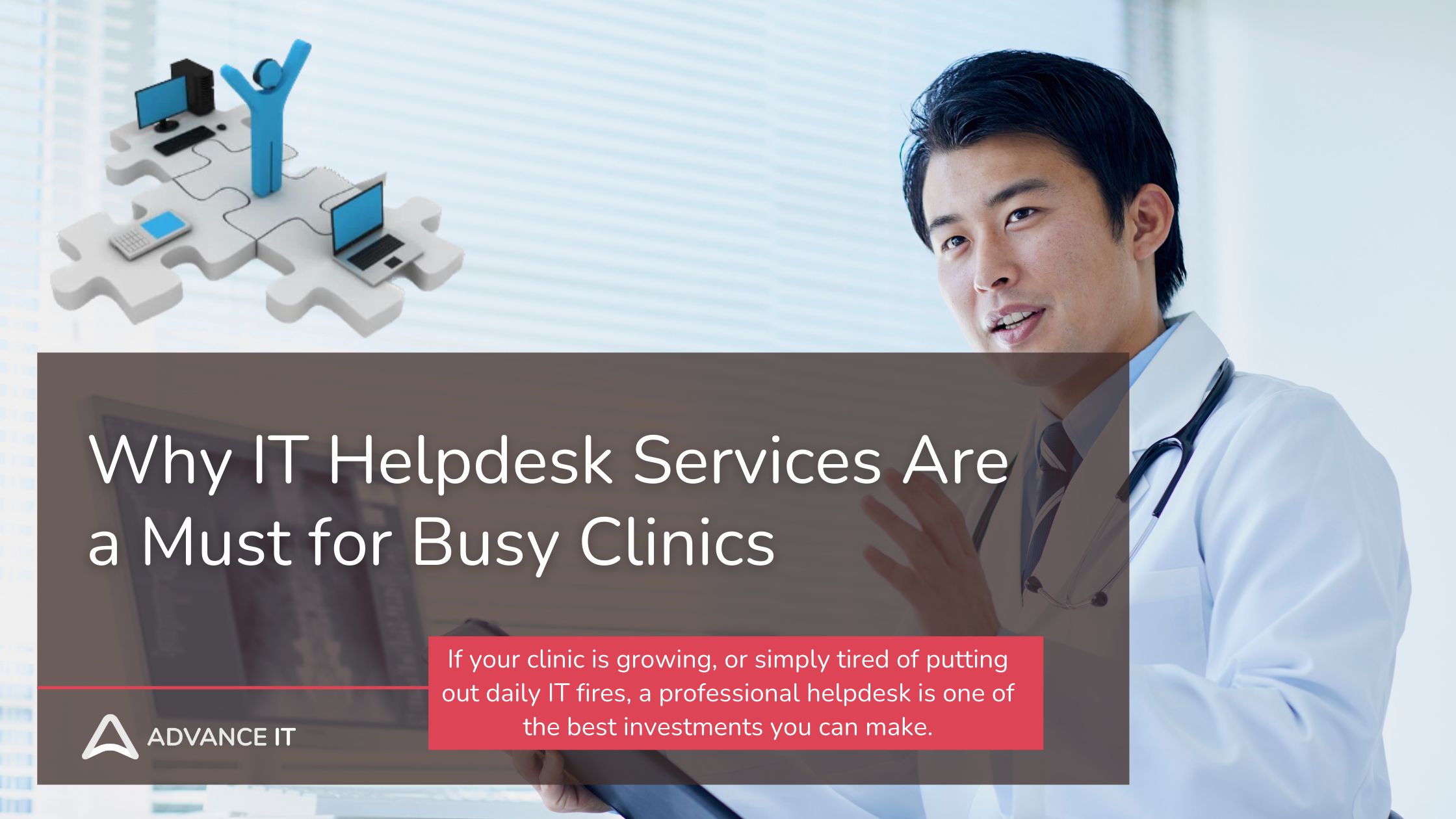
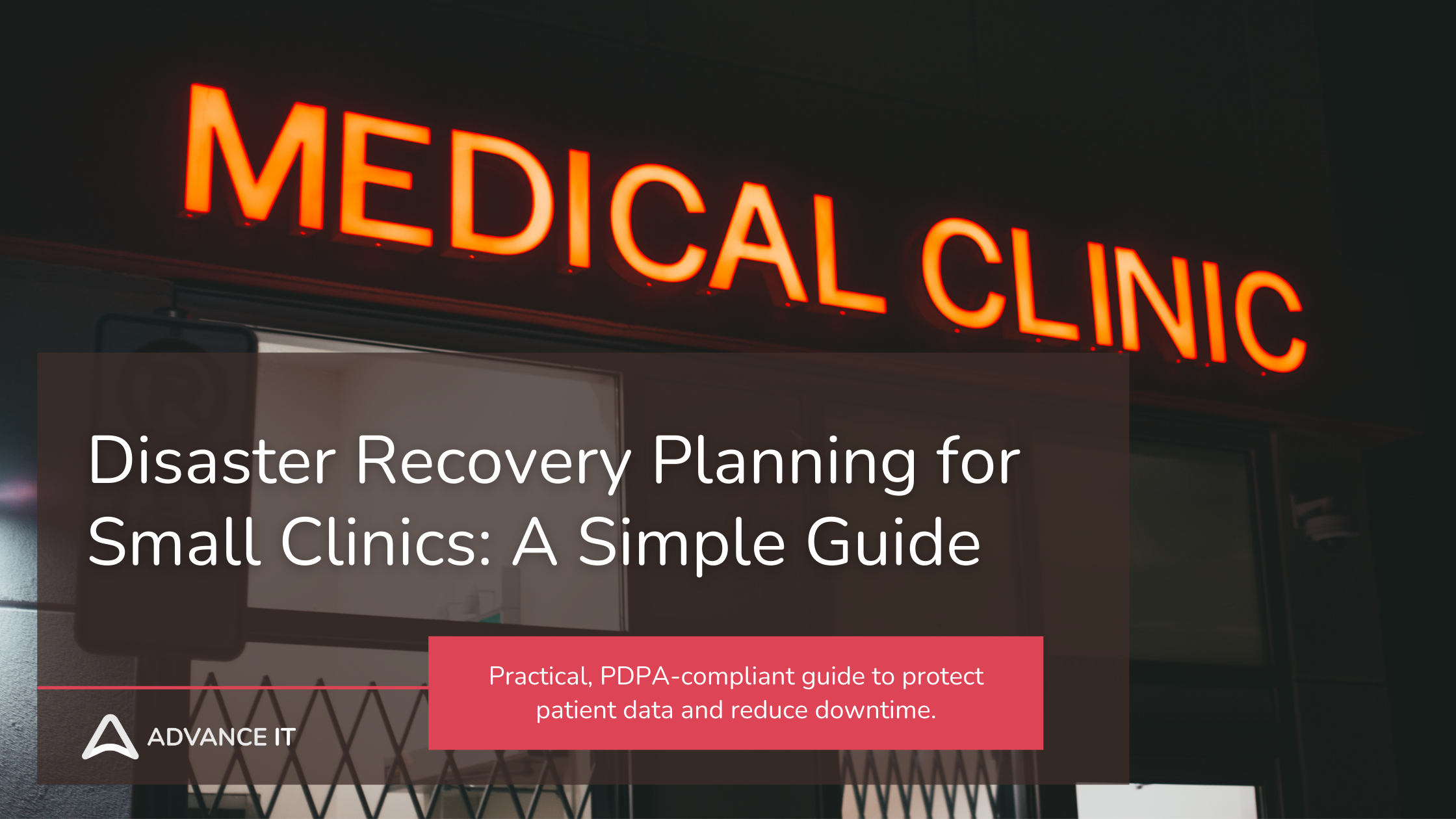
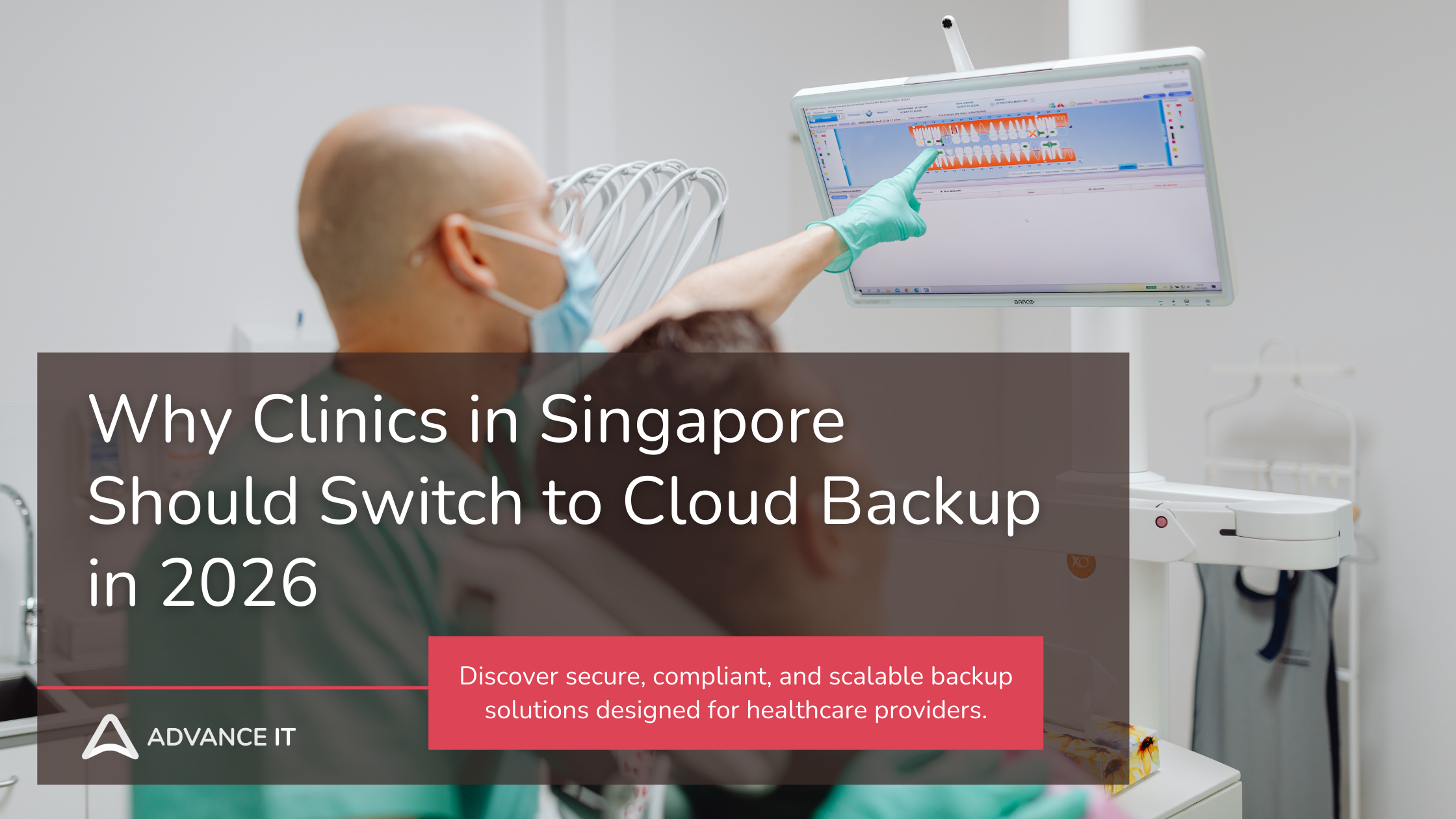
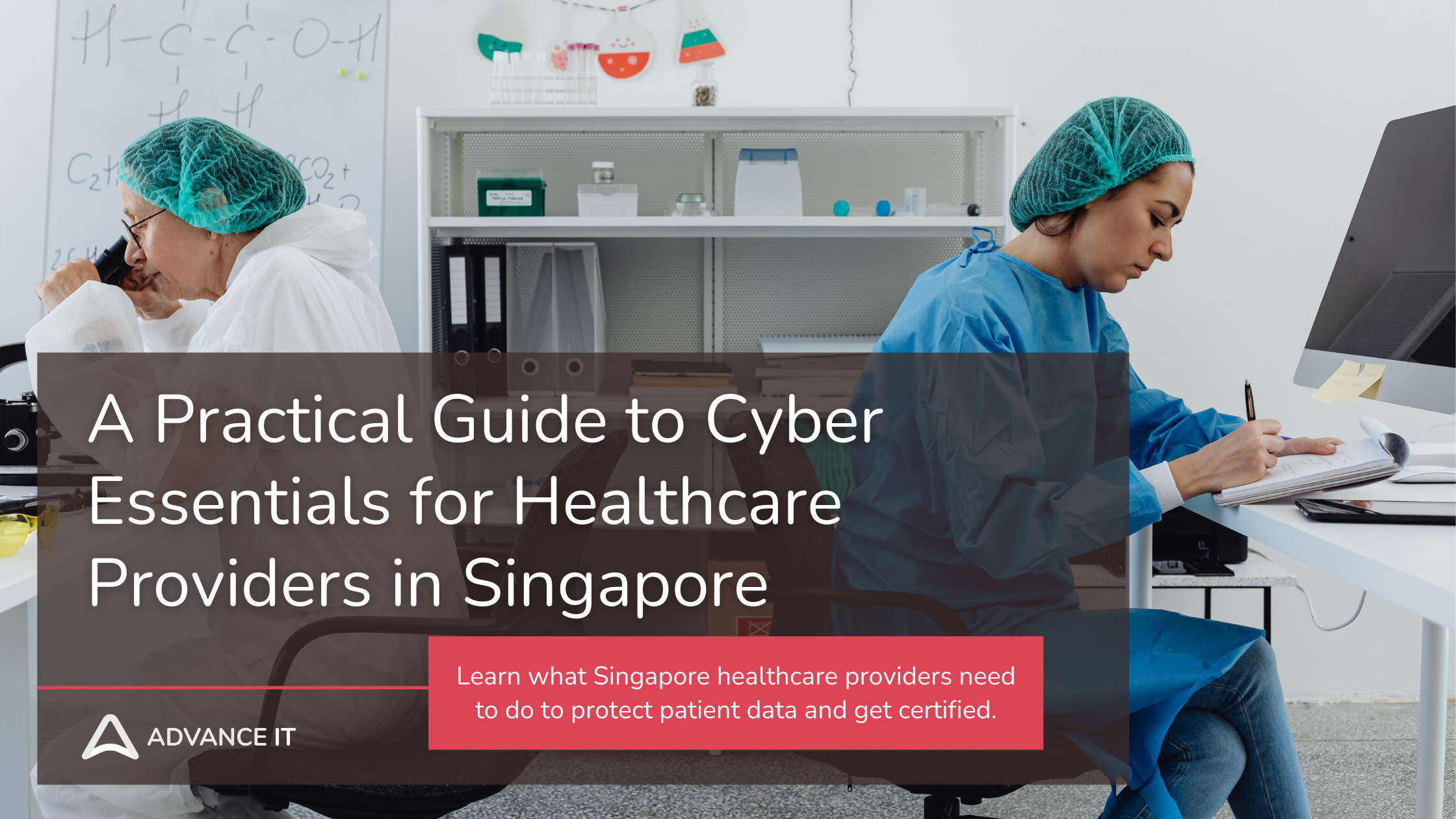
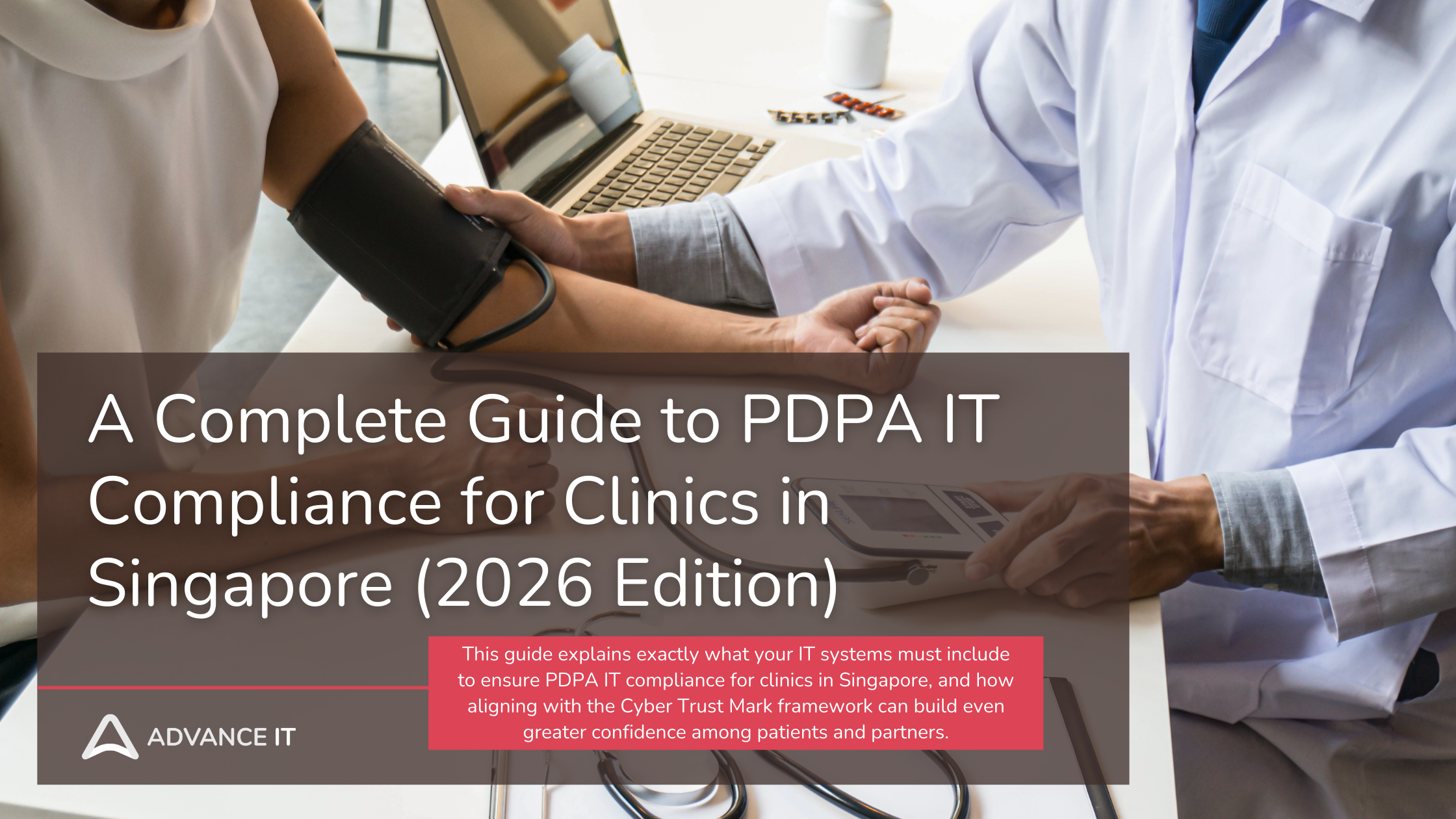
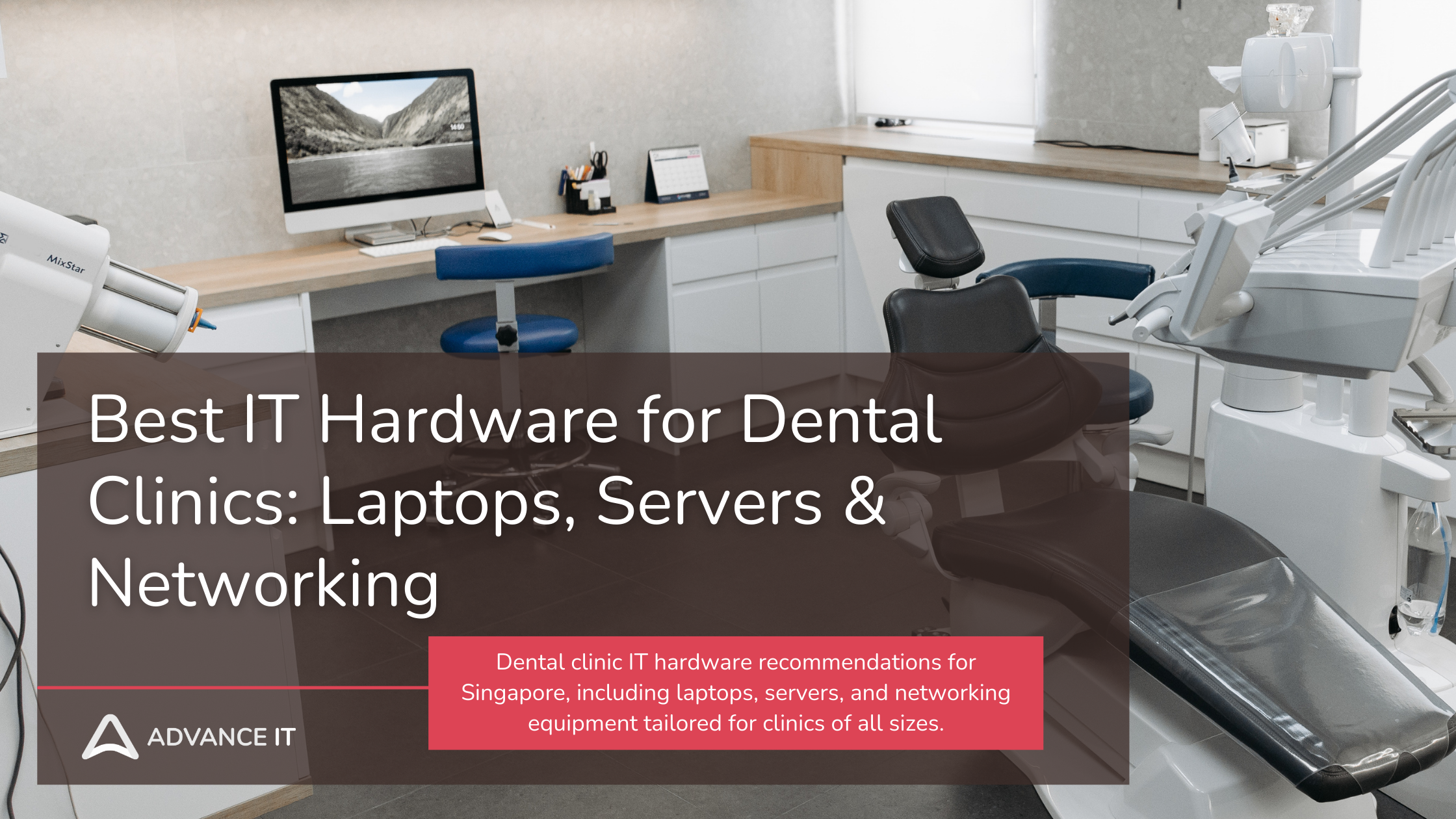
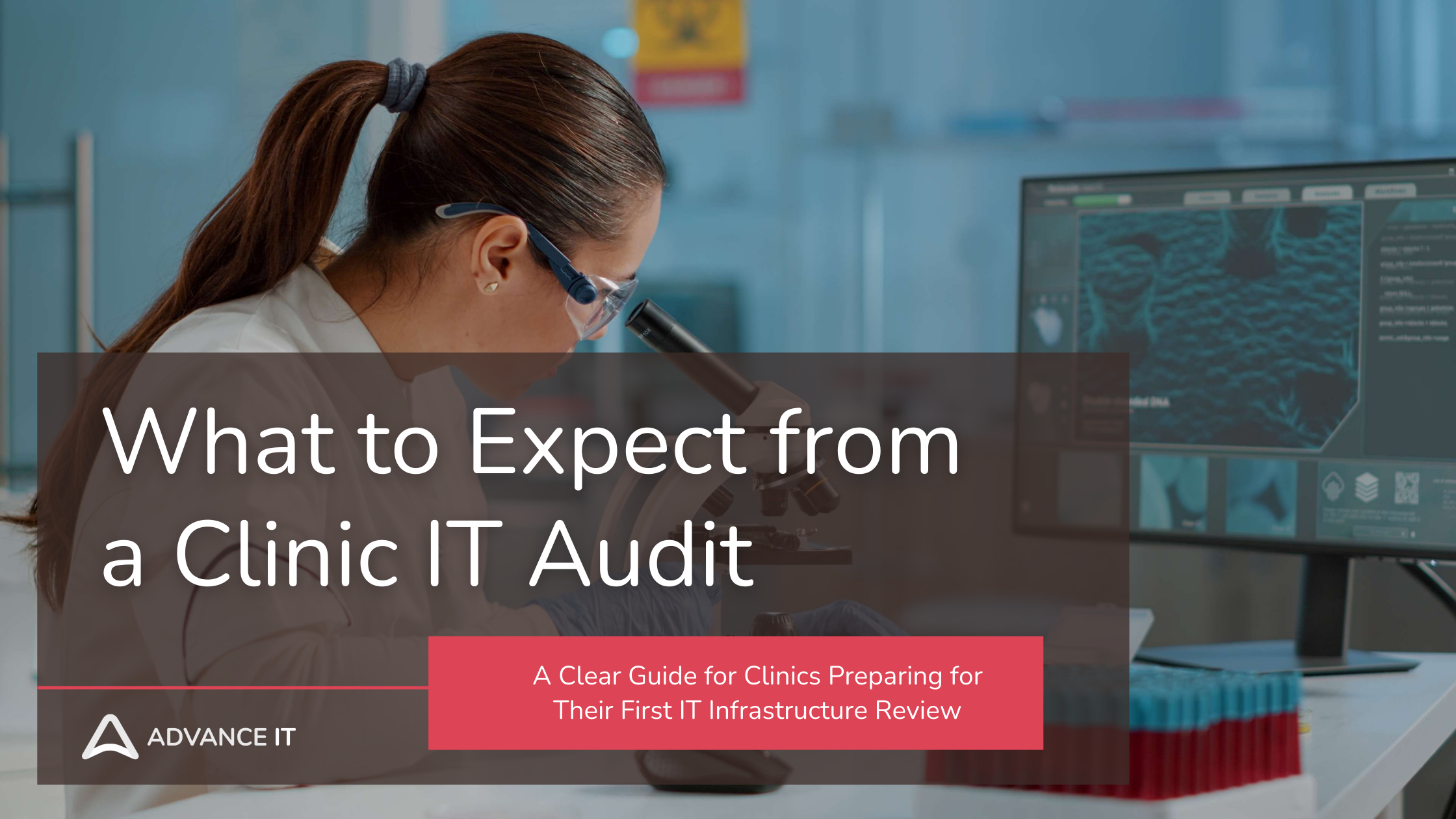
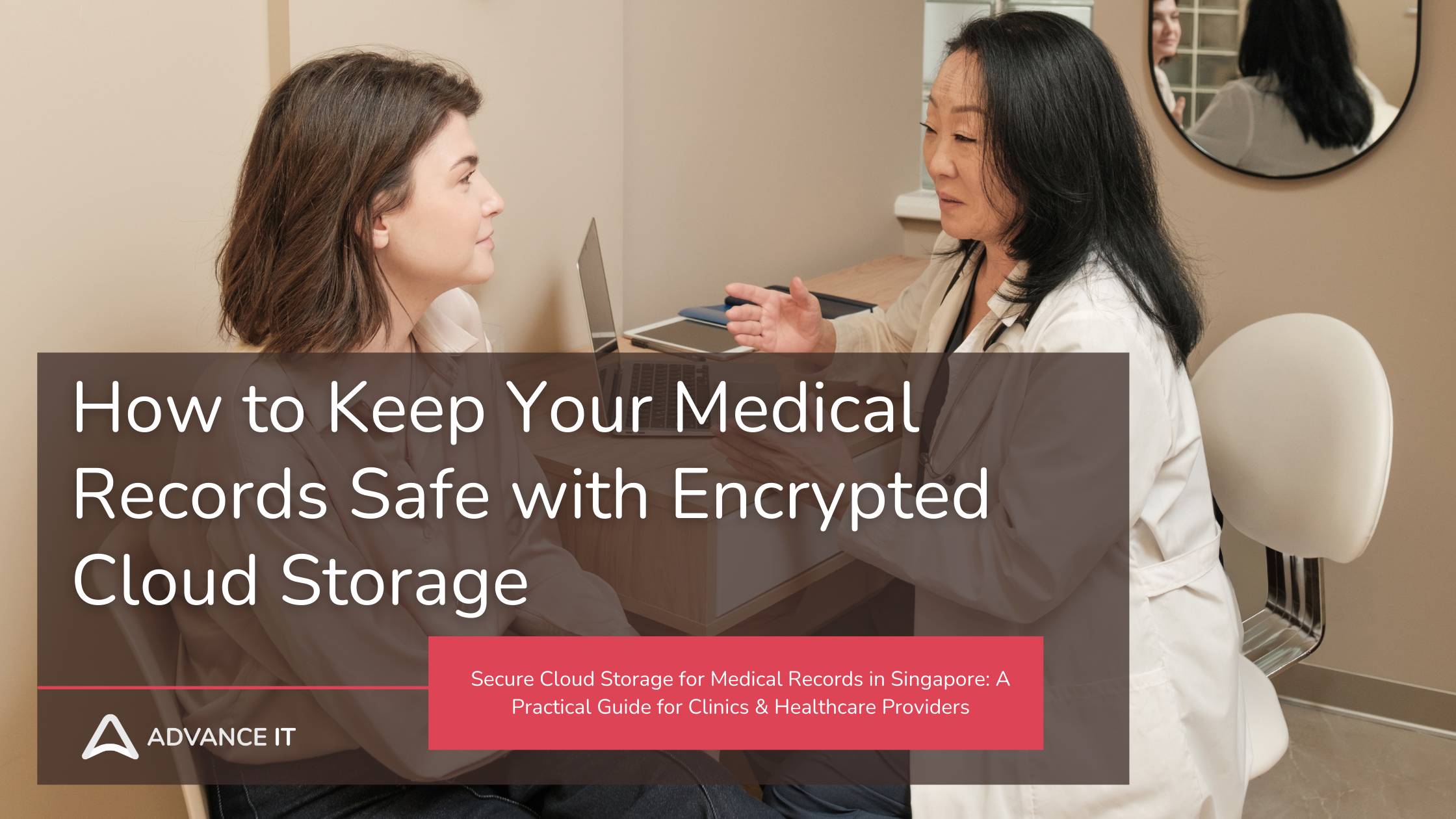


Opening a second clinic in Singapore? Discover key IT considerations for multi-location clinics. Learn how to scale securely with Advance IT’s expert support.